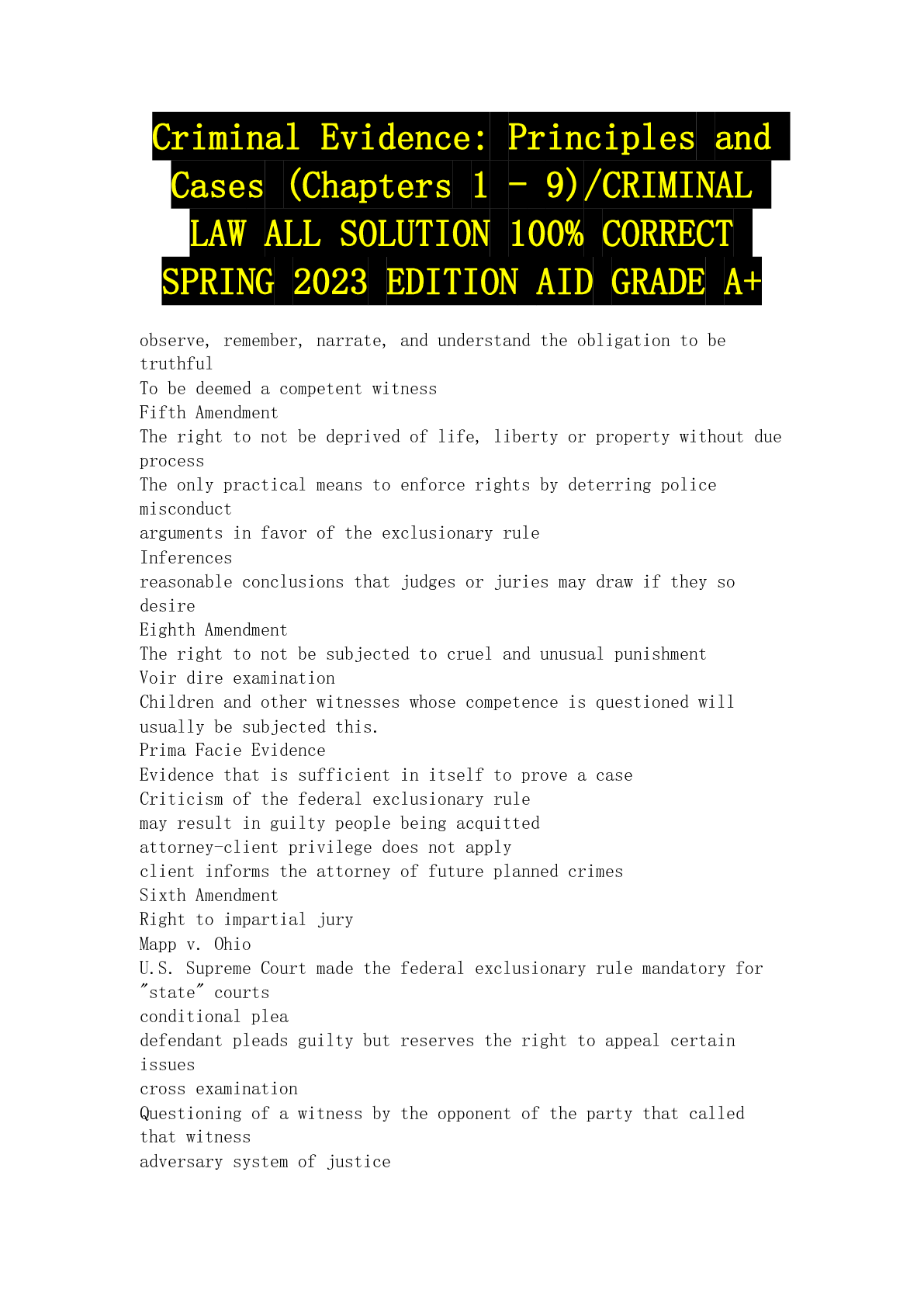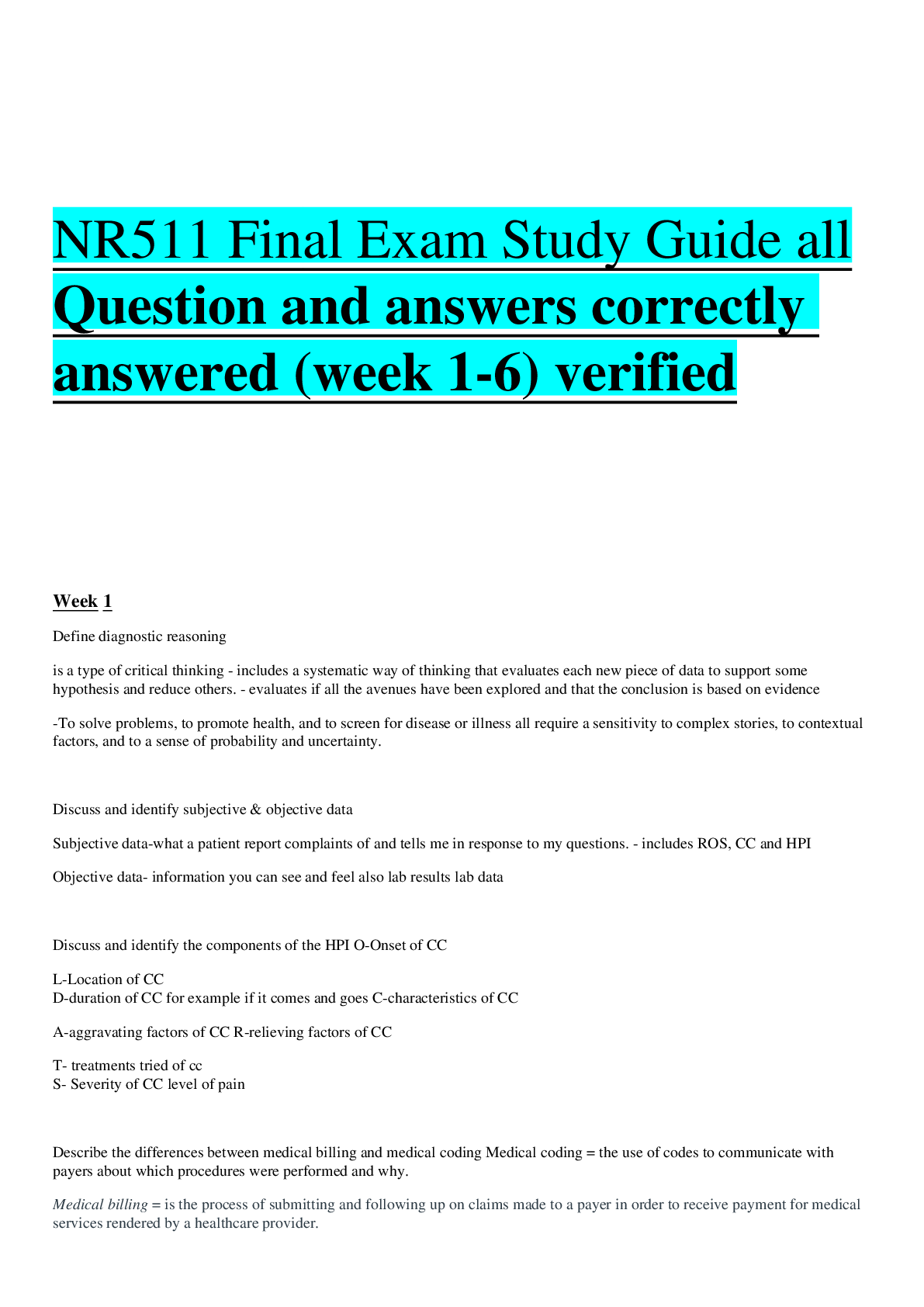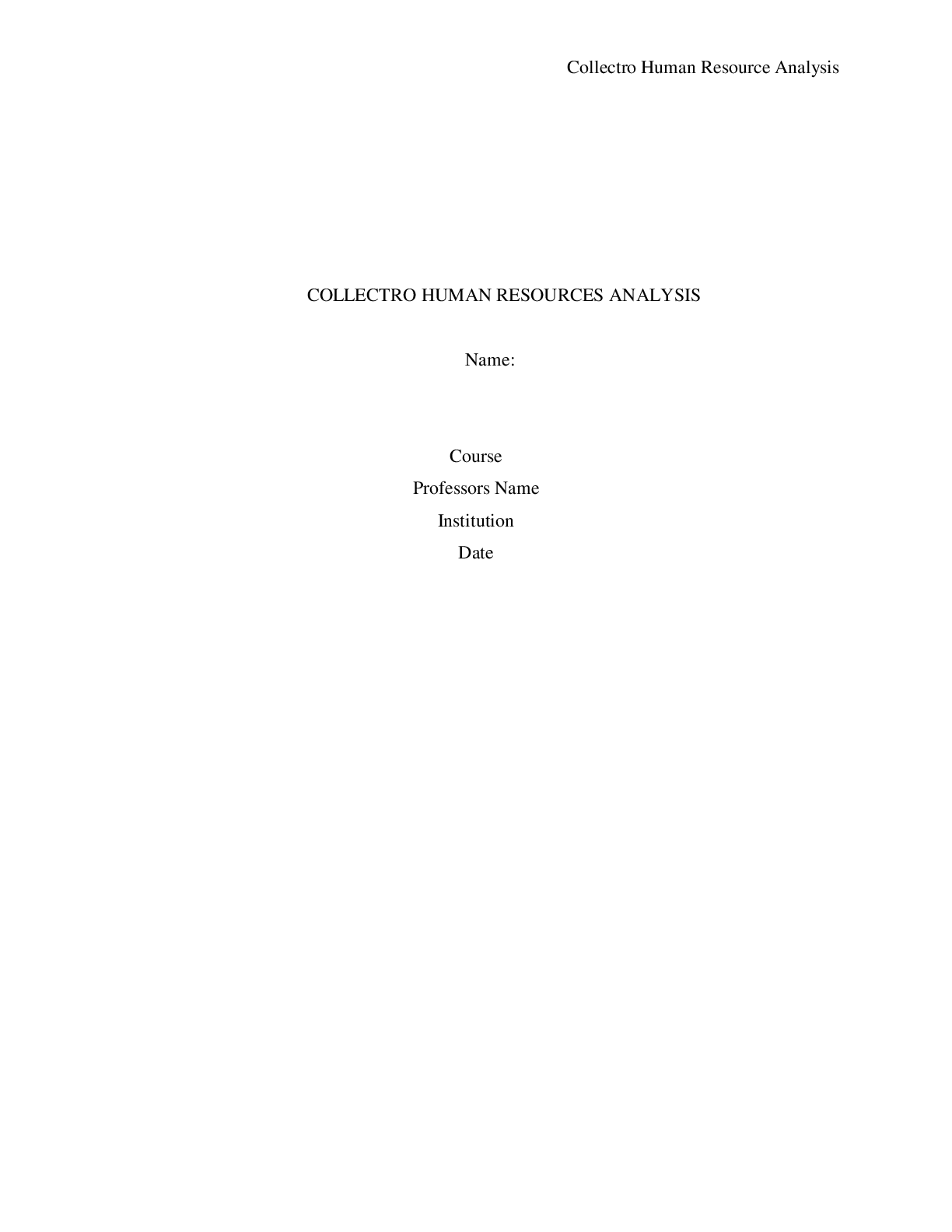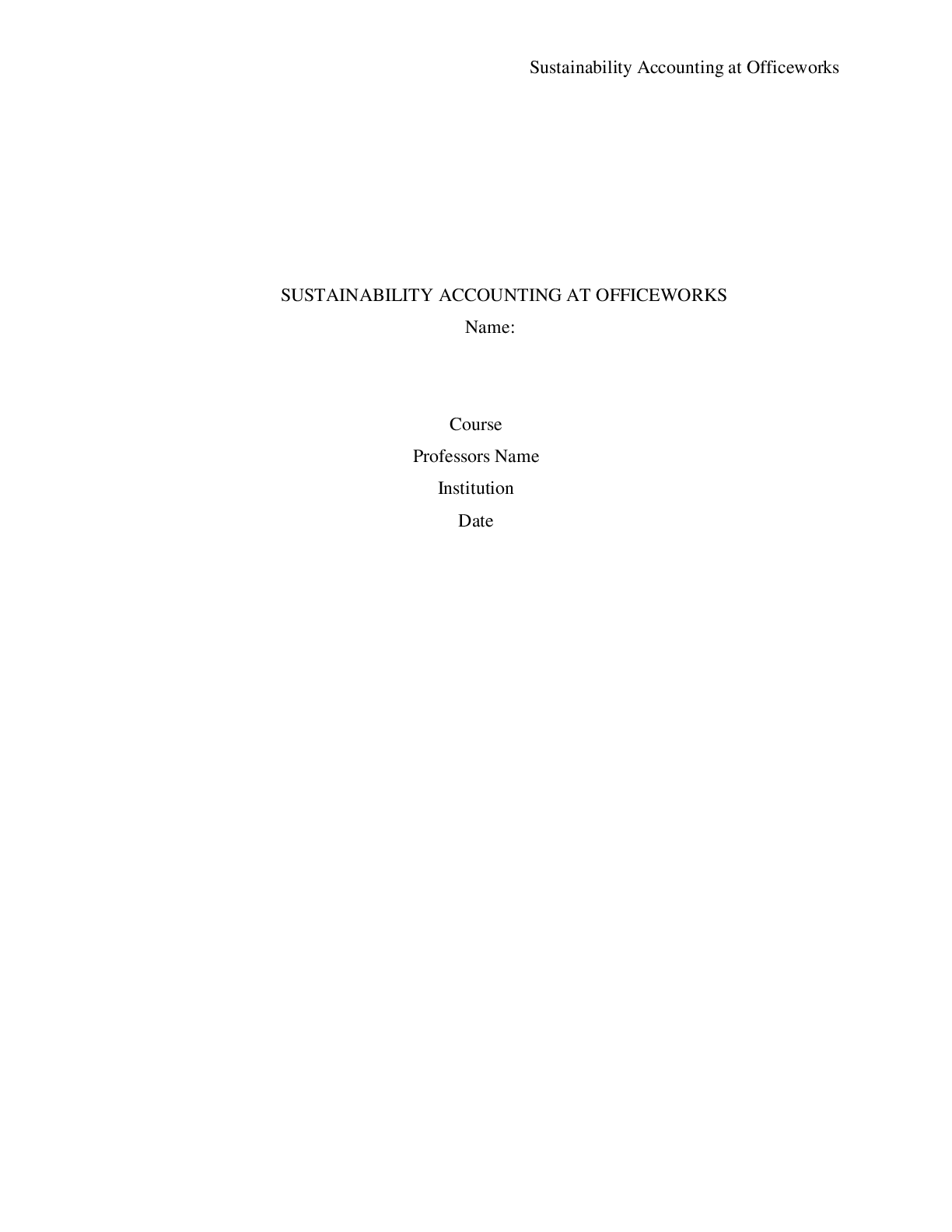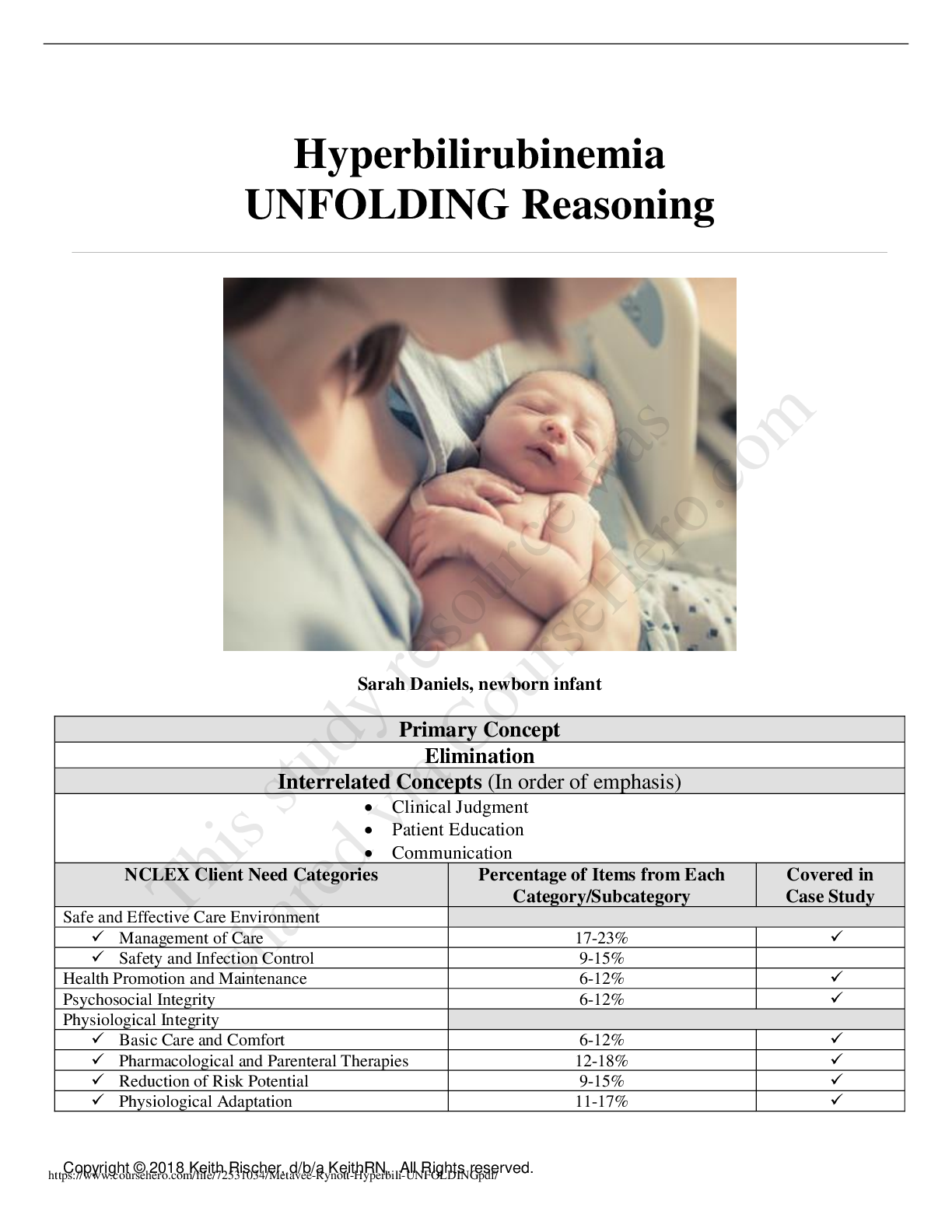Management > CASE STUDY > MGT302 Final Exam Study Guide SOLUTION 100%CORRECT SPRING FALL-2022 AID GRADE A+ (All)
MGT302 Final Exam Study Guide SOLUTION 100%CORRECT SPRING FALL-2022 AID GRADE A+
Document Content and Description Below
Tacit Knowledge – Information that is intuitive and difficult to articulate or codify in writing; Ex. swimming or riding a bike (you would want to show a person v. just tell them if they’ve never ... done these things before) • Can be gained through personal experience or interaction • Shared knowledge might be dispersed throughout the company Codified Knowledge – Information that can be easily captured in the form of text, tables, or diagrams; Ex. Jamba Juice recipes, procedures, etc. on how to make smoothies • Product specifications, scientific formulas and computer programs are examples of codified knowledge First Mover Advantages versus Pioneering Costs First Mover Advantages: this is the advantage gained by the first business/company to enter into a new market, can achieve huge market potential and growth as a result Pioneering Costs: costs the firm has to bear that a later entrant can avoid; can arise when the business system in a foreign country is so different from that in a firms home market that the enterprise has to devote considerable time efforts and expense to learning the rules of the game.) Value-to-Weight Ratio A high value-to-weight ratio means that the product is expensive and doesn’t weigh a lot so the cost to ship the products is low. This means that it would make more sense to produce in one place and ship from there. A low value-to-weight ratio are heavy inexpensive items like paint and certain bulk chemicals so when they are shipped long distances it can get expensive. It would be more cost efficient to produce these items in multiple markets. Types of Intellectual Property • Patents - consists of a set of exclusive rights granted by a sovereign state to an inventor or their assignee for a limited period of time in exchange for the public disclosure of an invention.The procedure for granting patents, the requirements placed on the patentee, and the extent of the exclusive rights vary widely between countries according to national laws and international agreements. • Copyrights - legal concept, enacted by most governments, giving the creator of an original work exclusive rights to it, usually for a limited time. Generally, it is "the right to copy", but also gives the copyright holder the right to be credited for the work, to determine who may adapt the work to other forms, who may perform the work, who may financially benefit from it, and other related rights • Trademarks - distinctive sign or indicator used by an individual, business organization, or other legal entity to identify that the products or services to consumers with which the trademark appears originate from a unique source, designated for a specific market, and is used to distinguish its products or services from those of other entities. • Industrial Designs - rights that make exclusive the visual design of objects that are not purely utilitarian. A design patent would also be considered under this category. An industrial design consists of the creation of a shape, configuration or composition of pattern or color, or combination of pattern and color in three dimensional form containing aesthetic value • Trade Secrets - formula, practice, process, design, instrument, pattern, or compilation of information which is not generally known or reasonably ascertainable, by which a business can obtain an economic advantage over competitors or customers Intellectual Property Rights form of legal entitlement which allows its holder to control the use of certain intangible ideas and expressions. The term intellectual property reflects the idea that once established, such entitlements are generally treated by courts, especially in common law jurisdictions, as if they were tangible property. The most common forms of intellectual property include patents, copyrights, trademarks, and trade secrets. Externalities knowledge ‘spillovers’- general knowledge related to a specific industry or idea; comes from sheer concentration of intellectual talent, and a network of informal contacts that allows firms to benefit from each other’s knowledge generation. Basic Entry Decisions: • Which foreign markets – Choose markets close to home and easily moved to • Timing the entry – First mover advantage for new entrants can lead to brand becoming synonymous with the solution of a problem; Ex. Apple iPod is synonymous with mp3 players/portable music problem in the mind of the consumers o Switching costs for customers implemented by first mover can further solidify customer use/base o First mover mistakes can end up benefiting later entrants • Scale of entry – Do we want to enter a foreign market on a very large scale? (Show up and make a large statement) Or should we show up slowly? Resources may determine this for you [Show More]
Last updated: 1 year ago
Preview 1 out of 35 pages
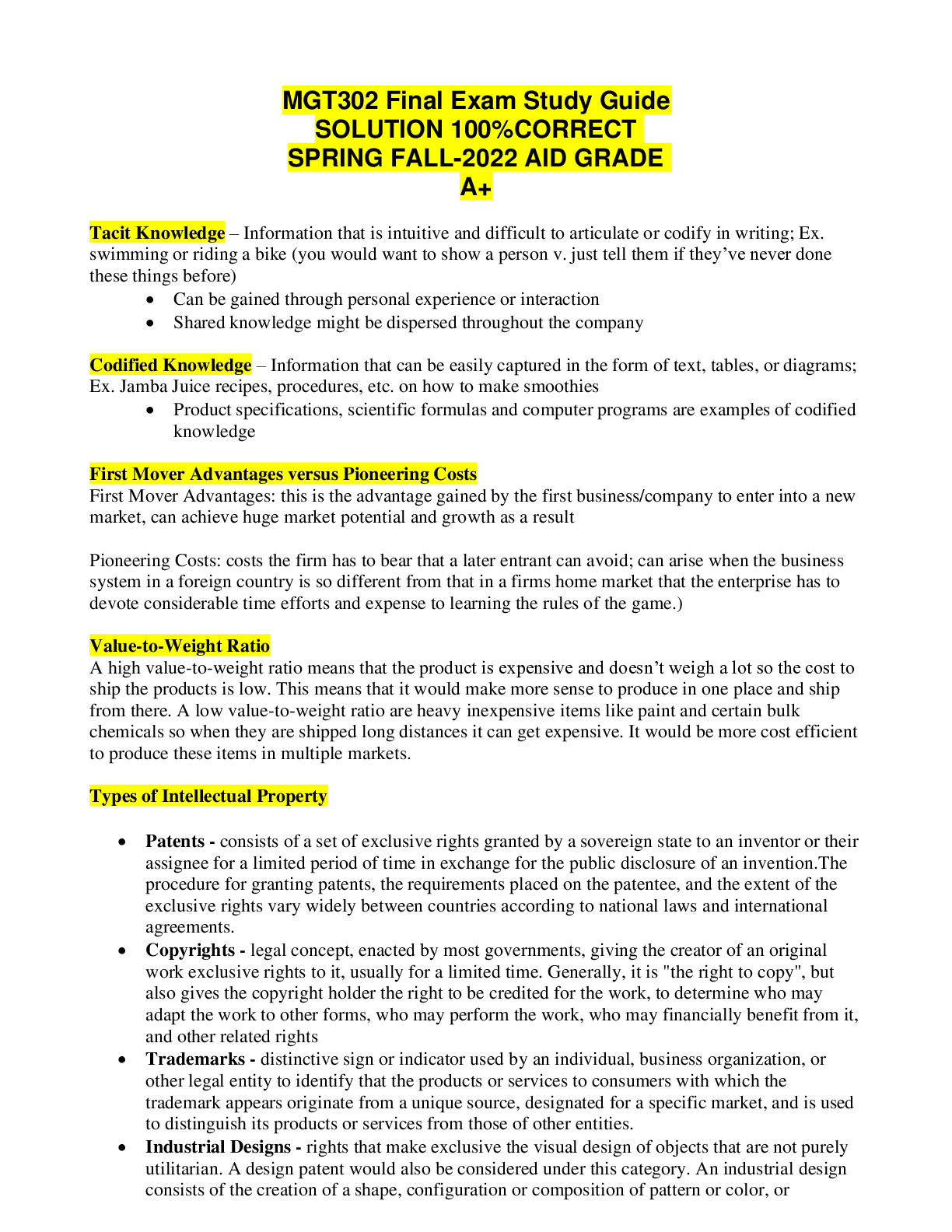
Reviews( 0 )
Document information
Connected school, study & course
About the document
Uploaded On
May 23, 2022
Number of pages
35
Written in
Additional information
This document has been written for:
Uploaded
May 23, 2022
Downloads
0
Views
37

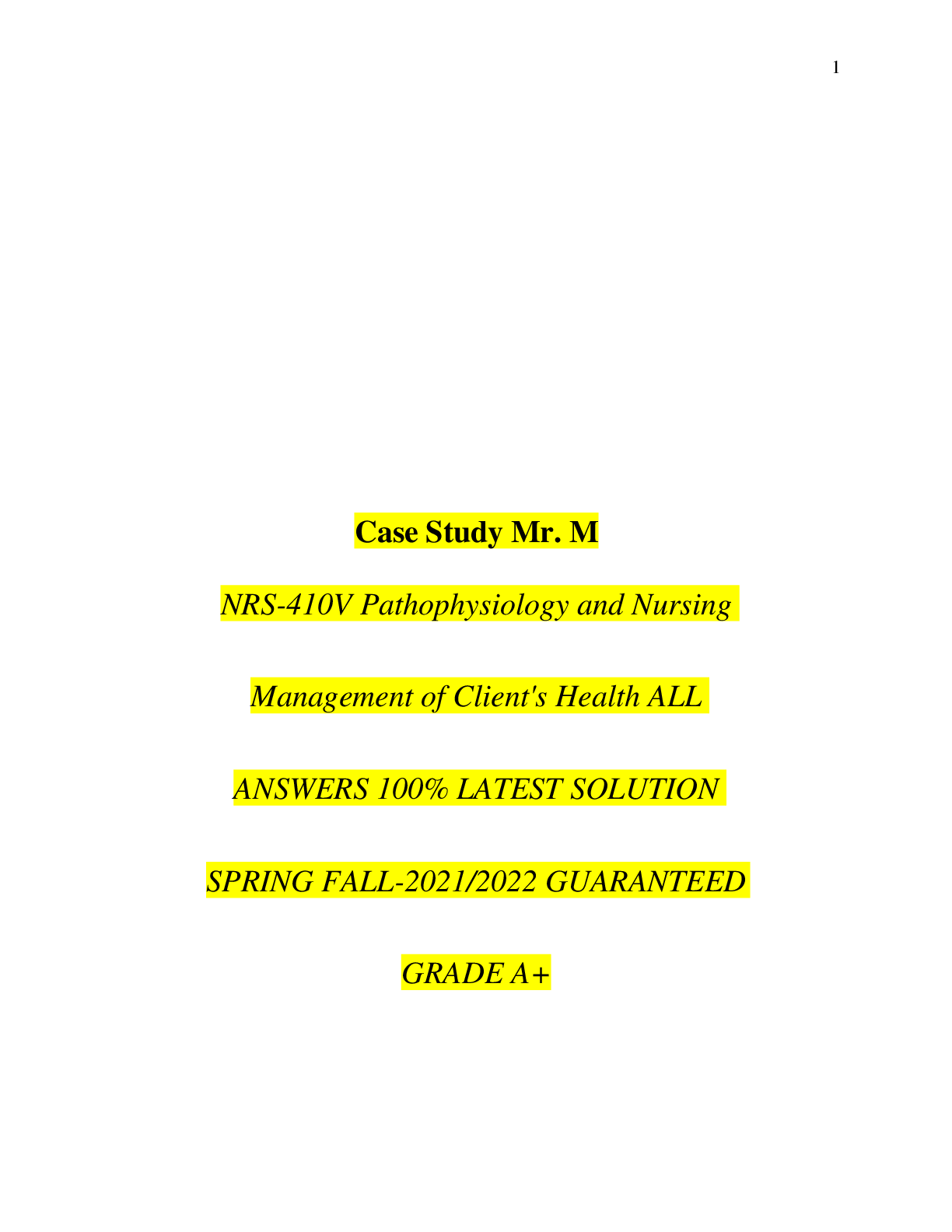


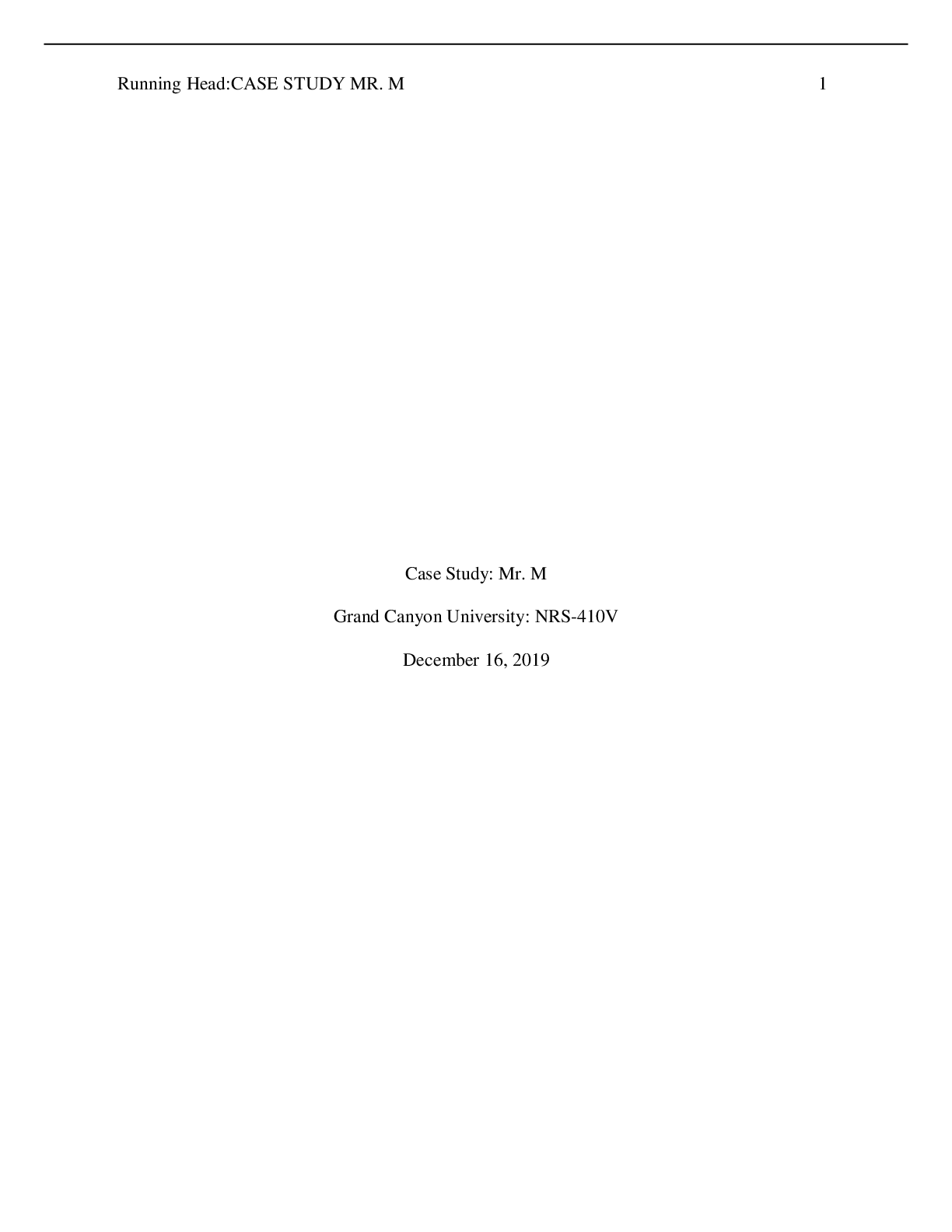
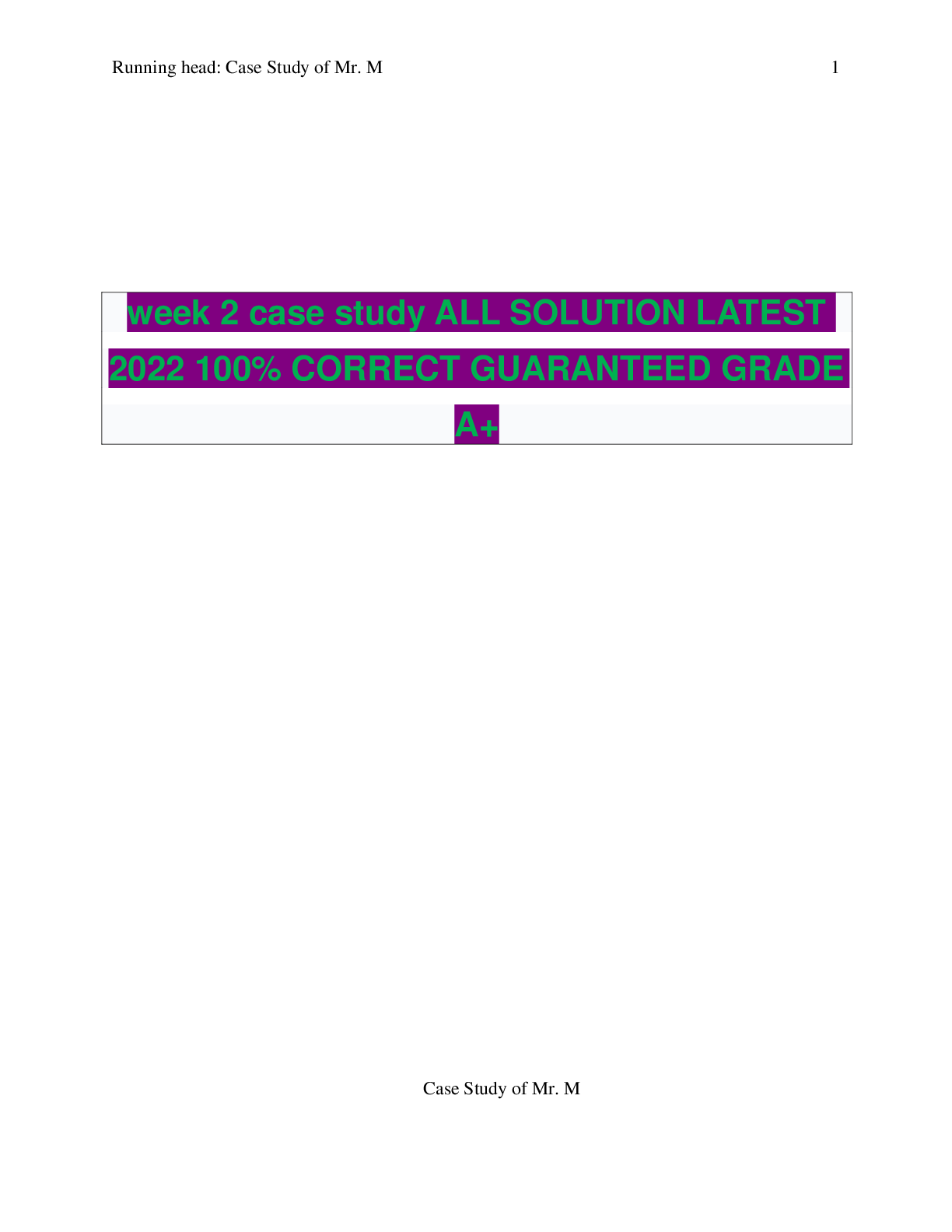

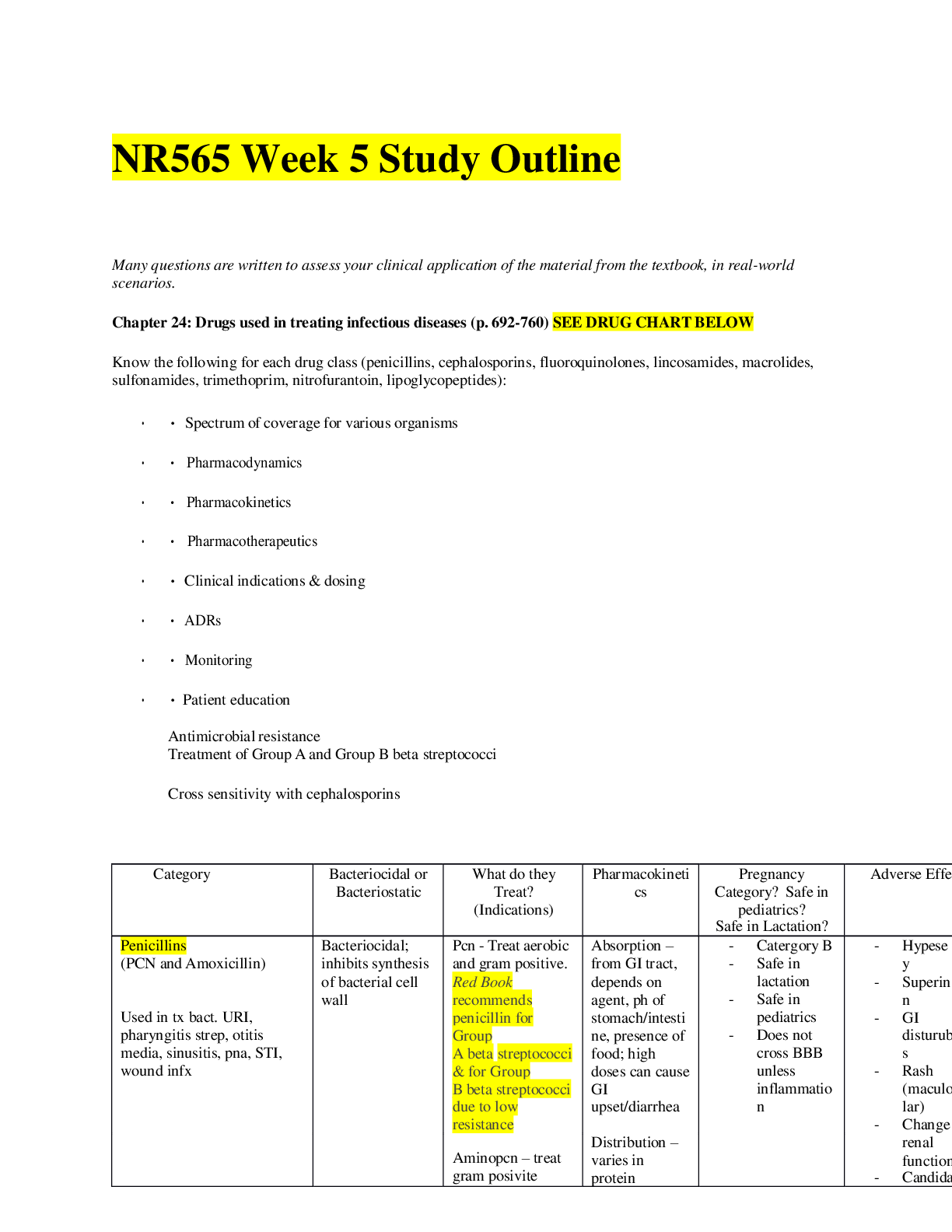
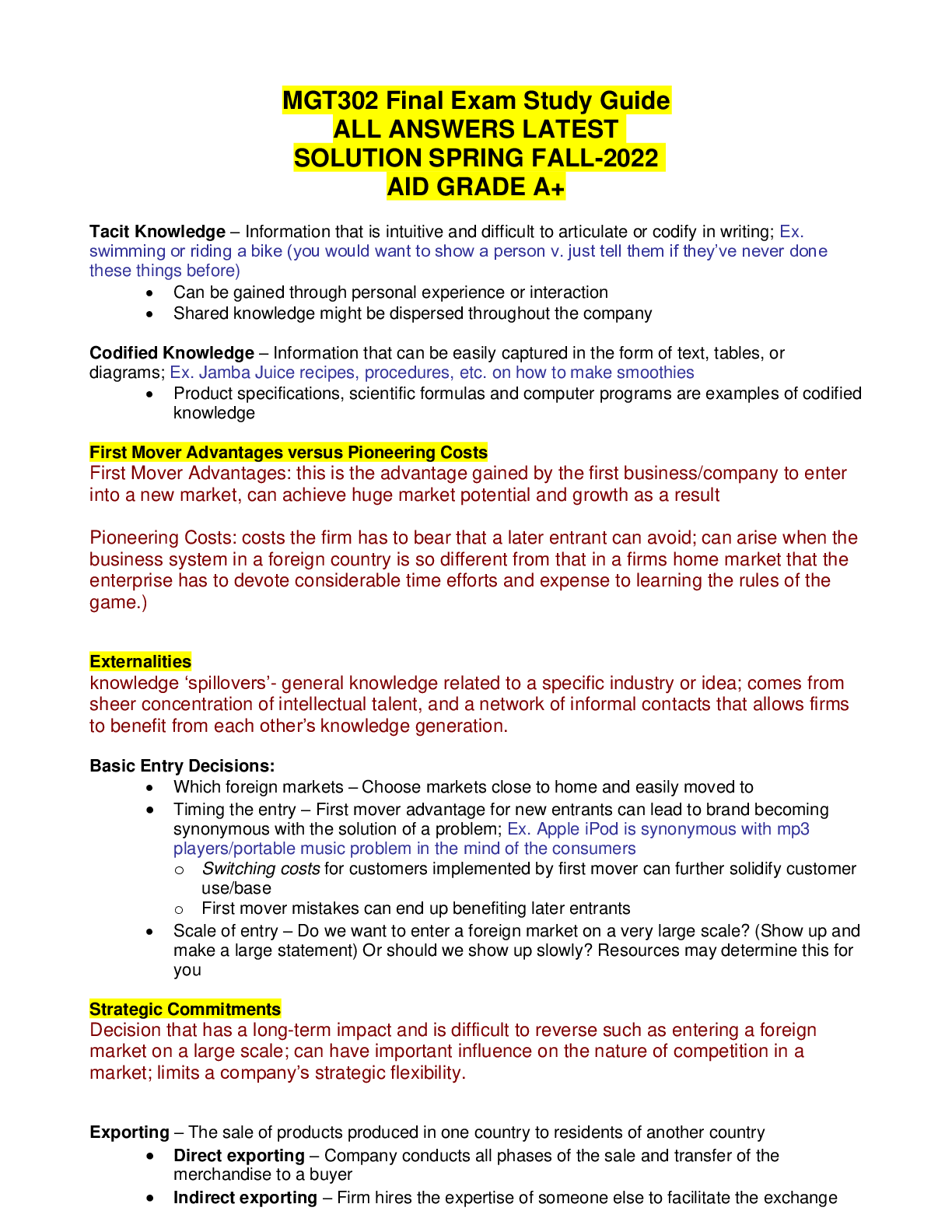


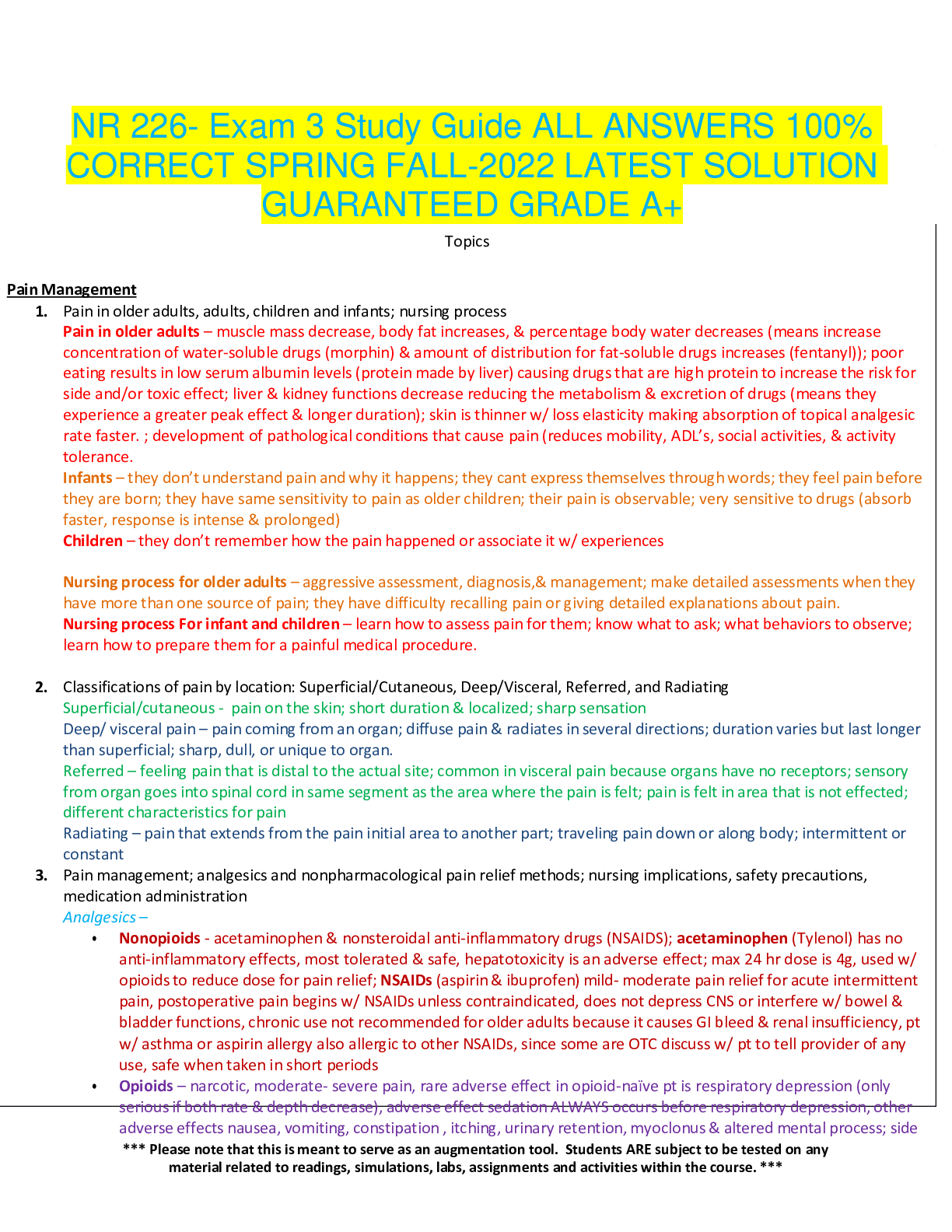


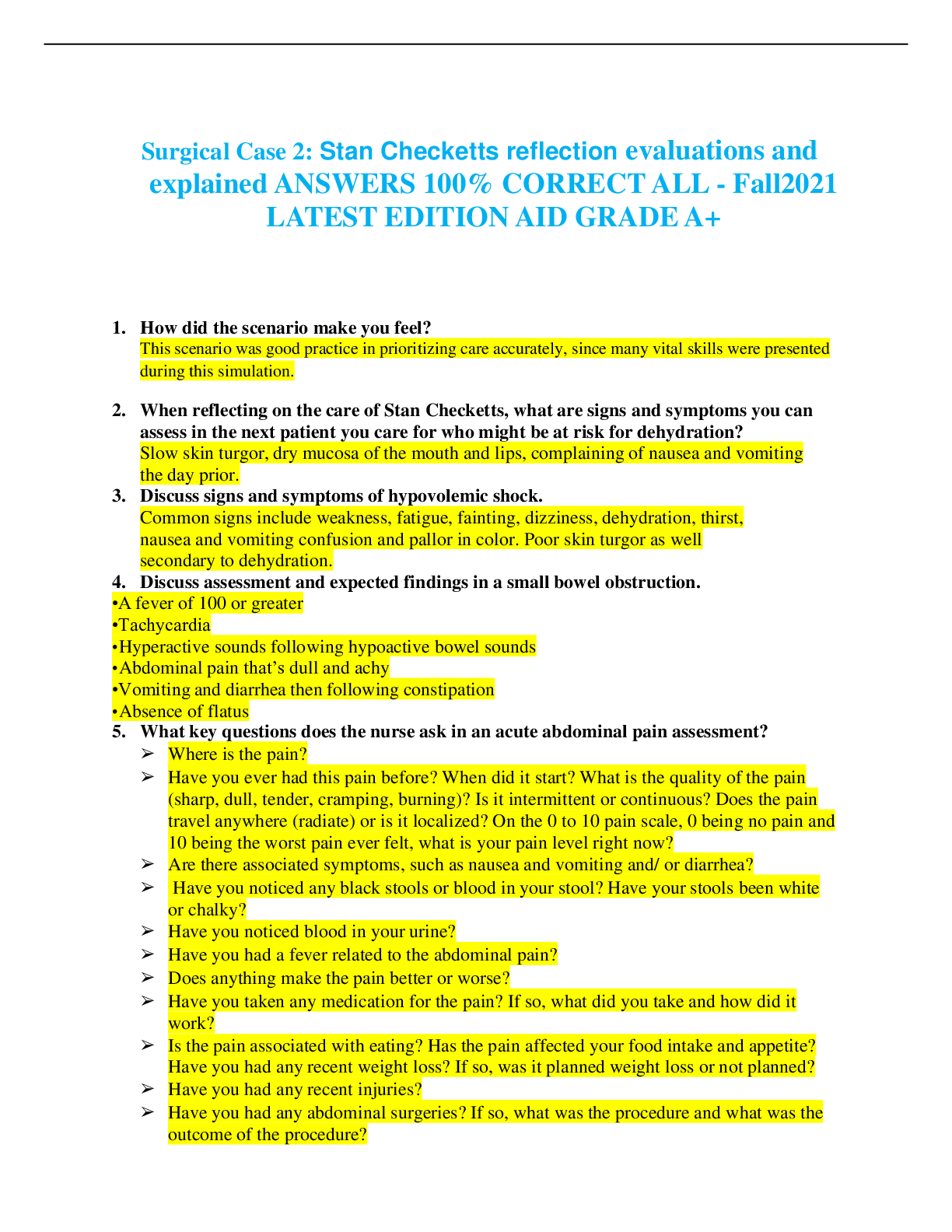
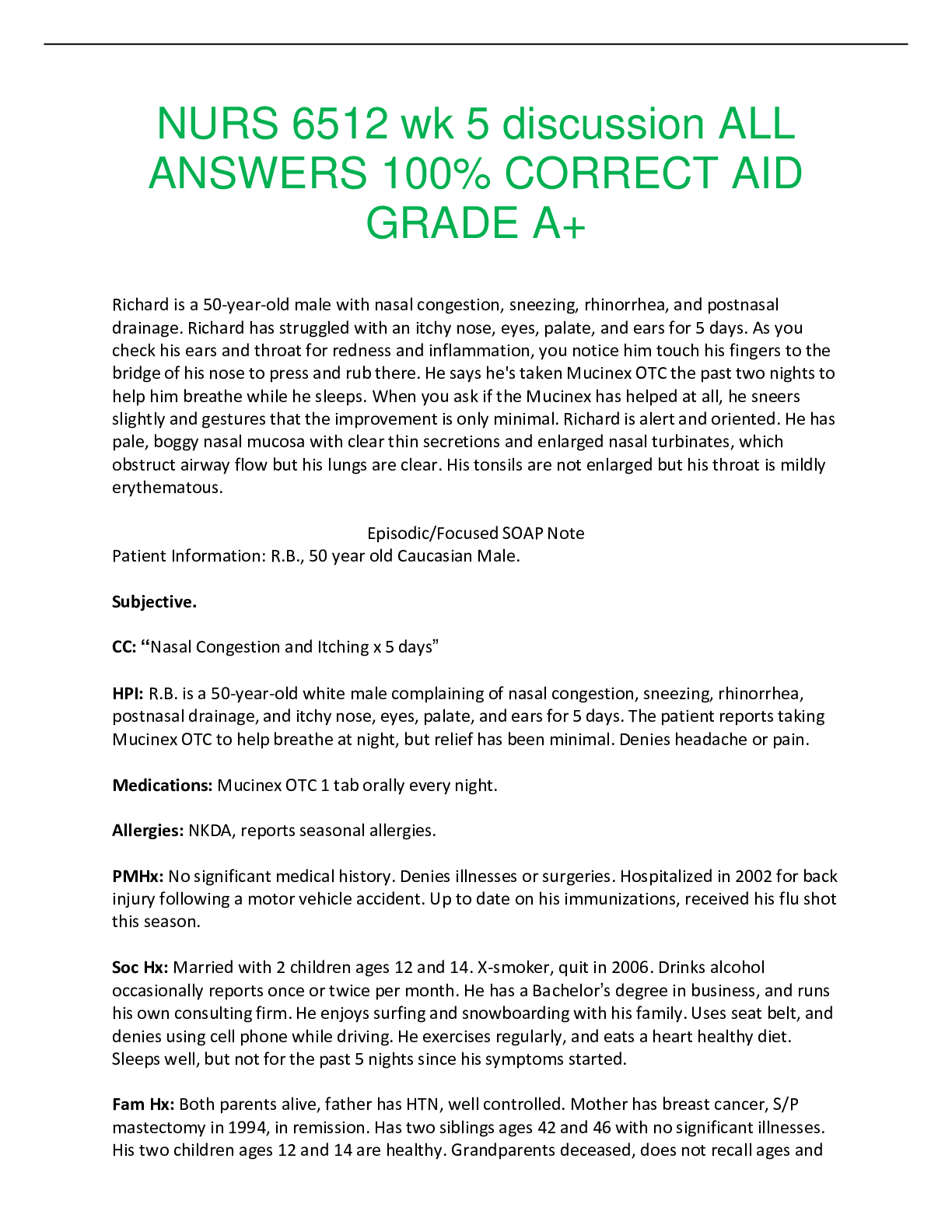
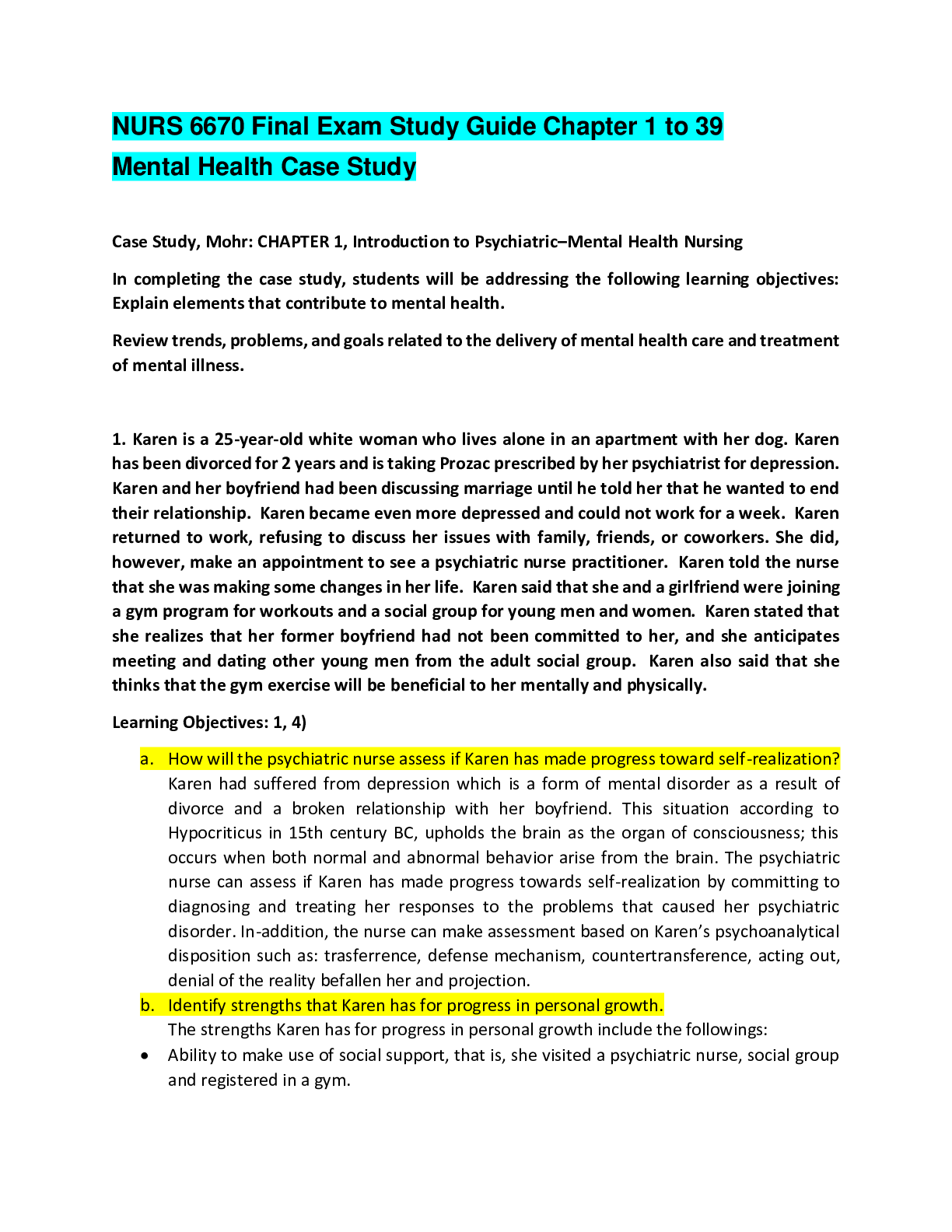
.png)
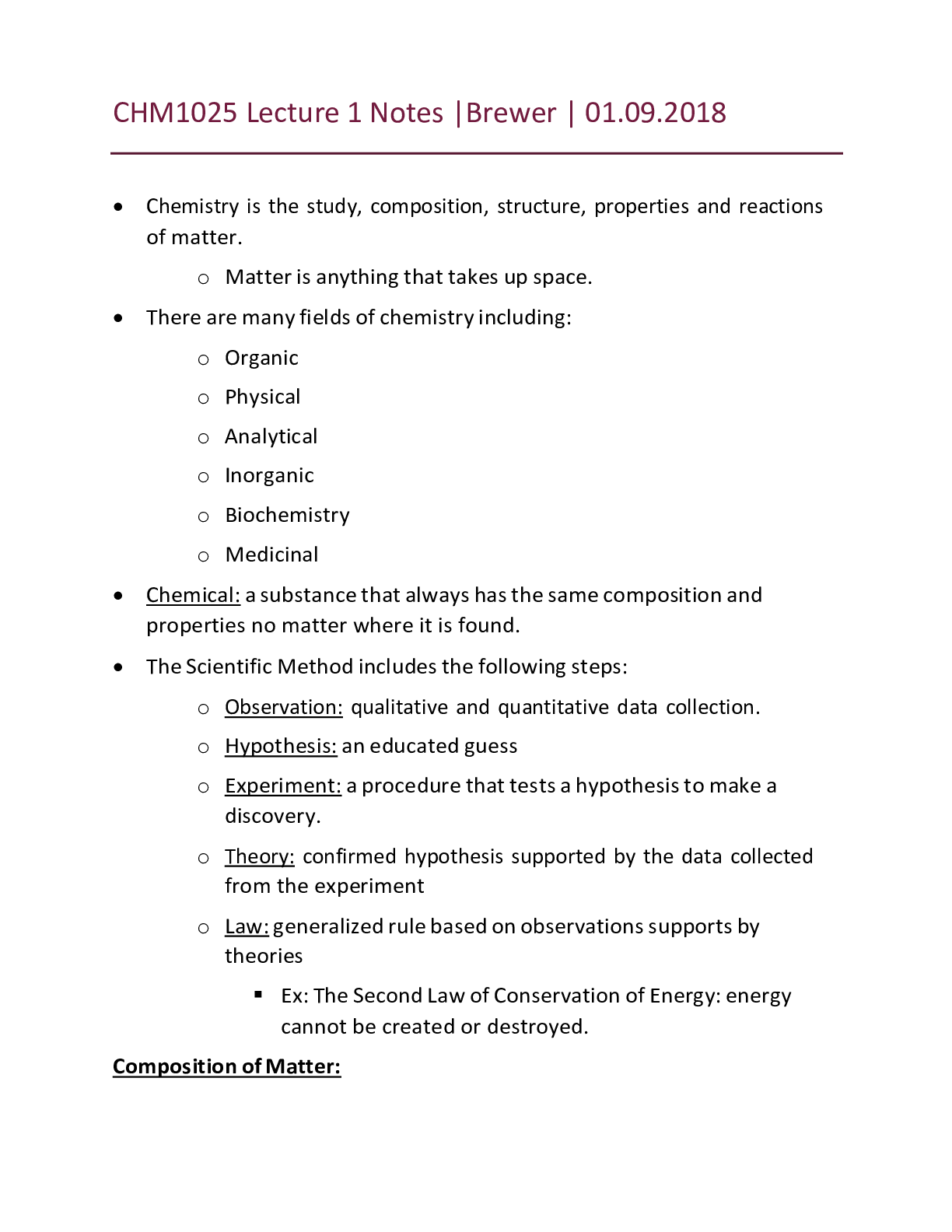


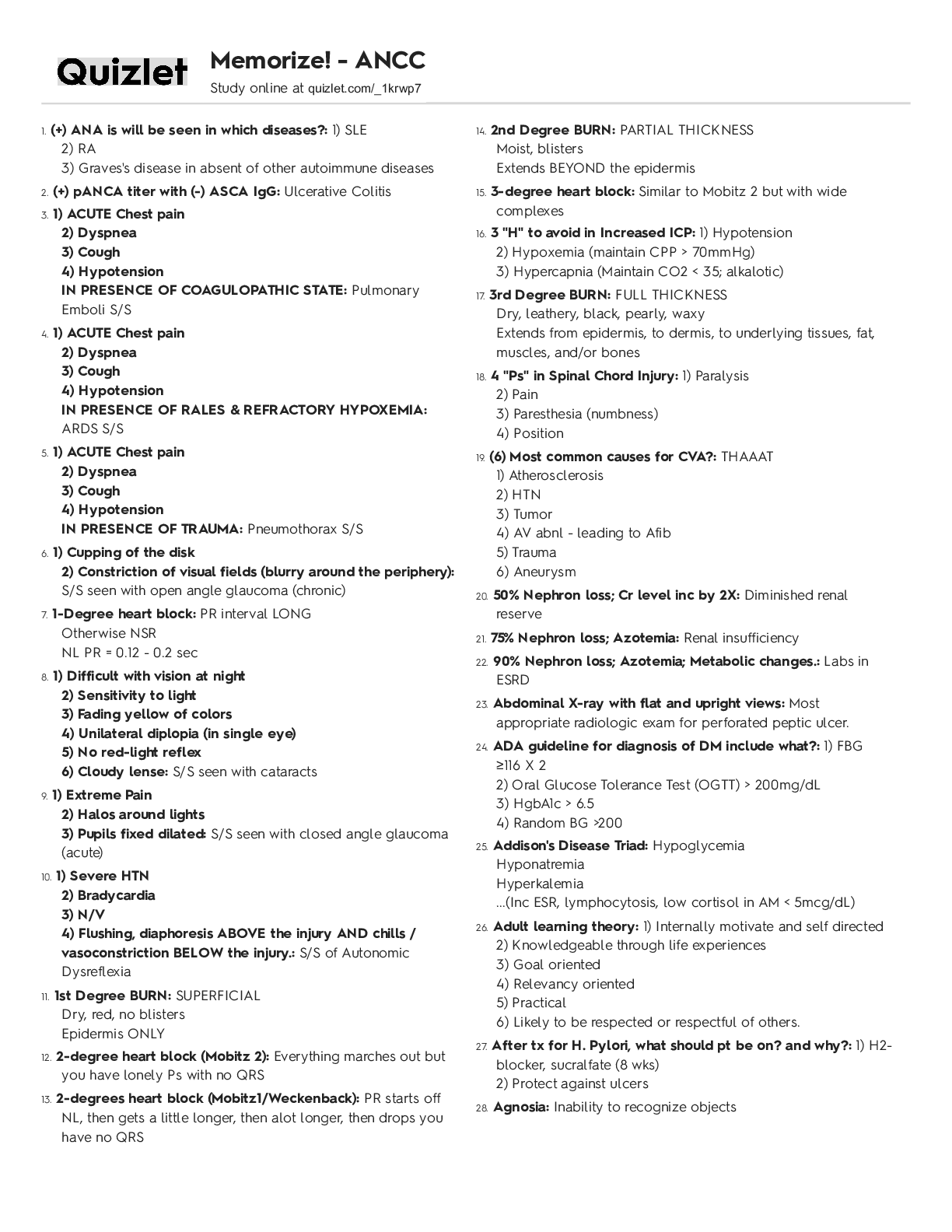
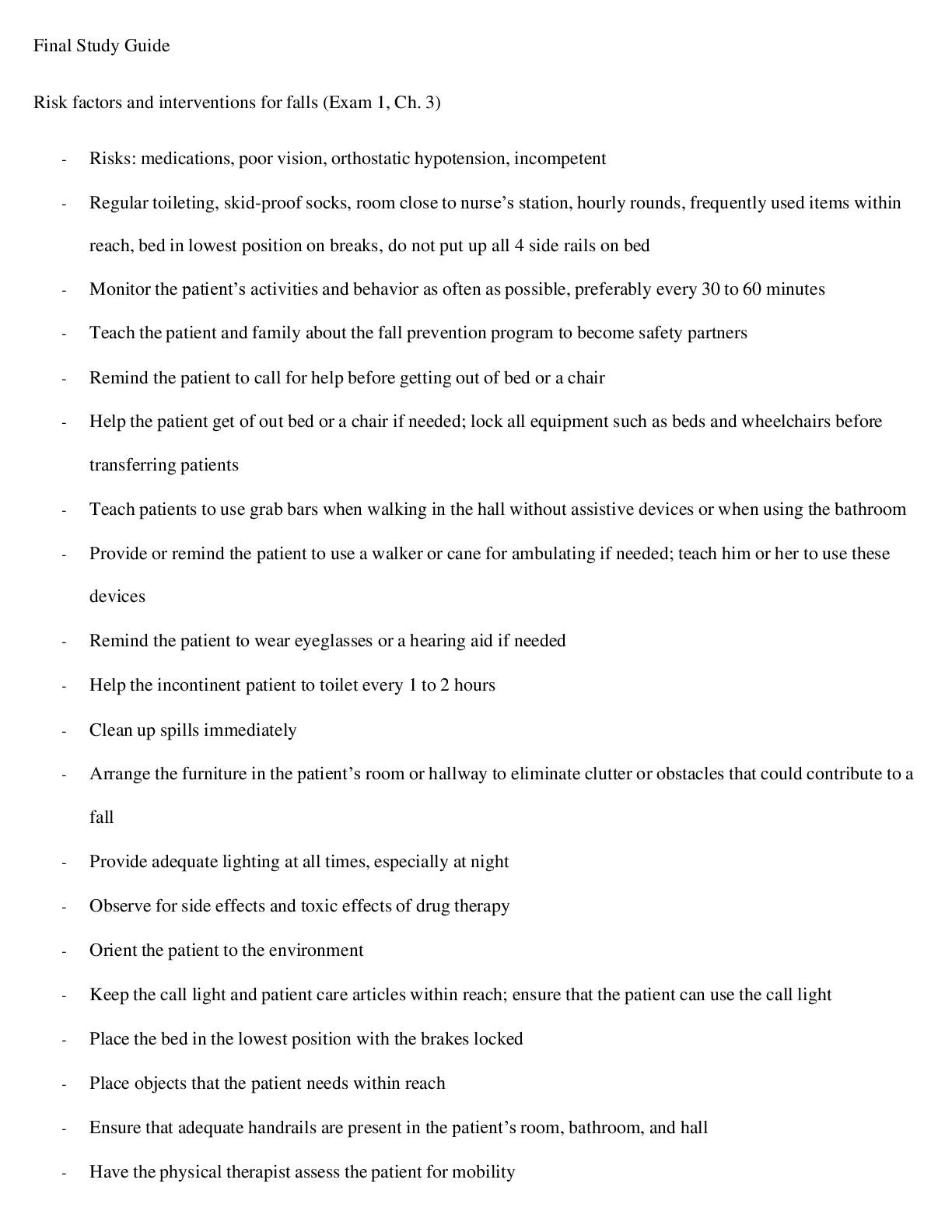

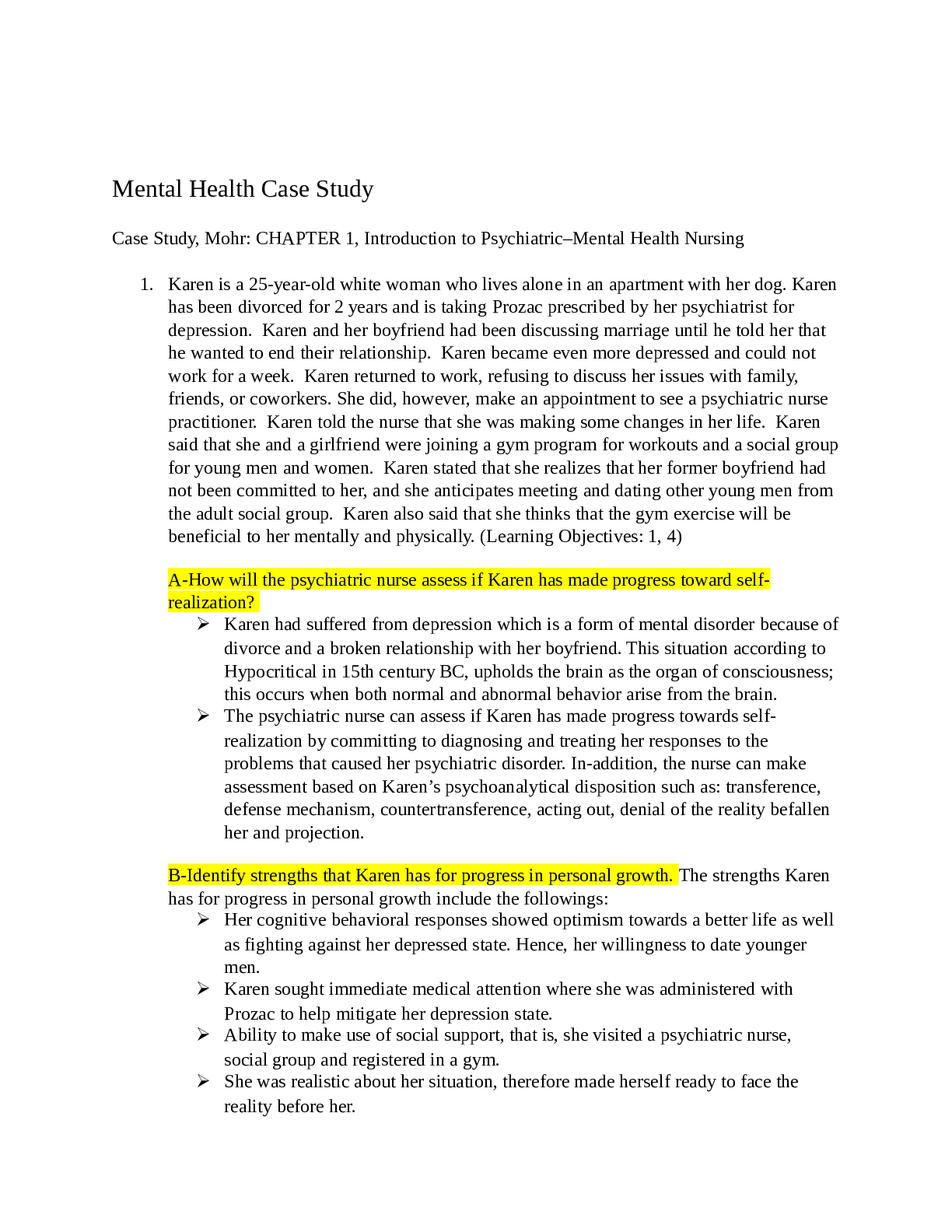
.png)
